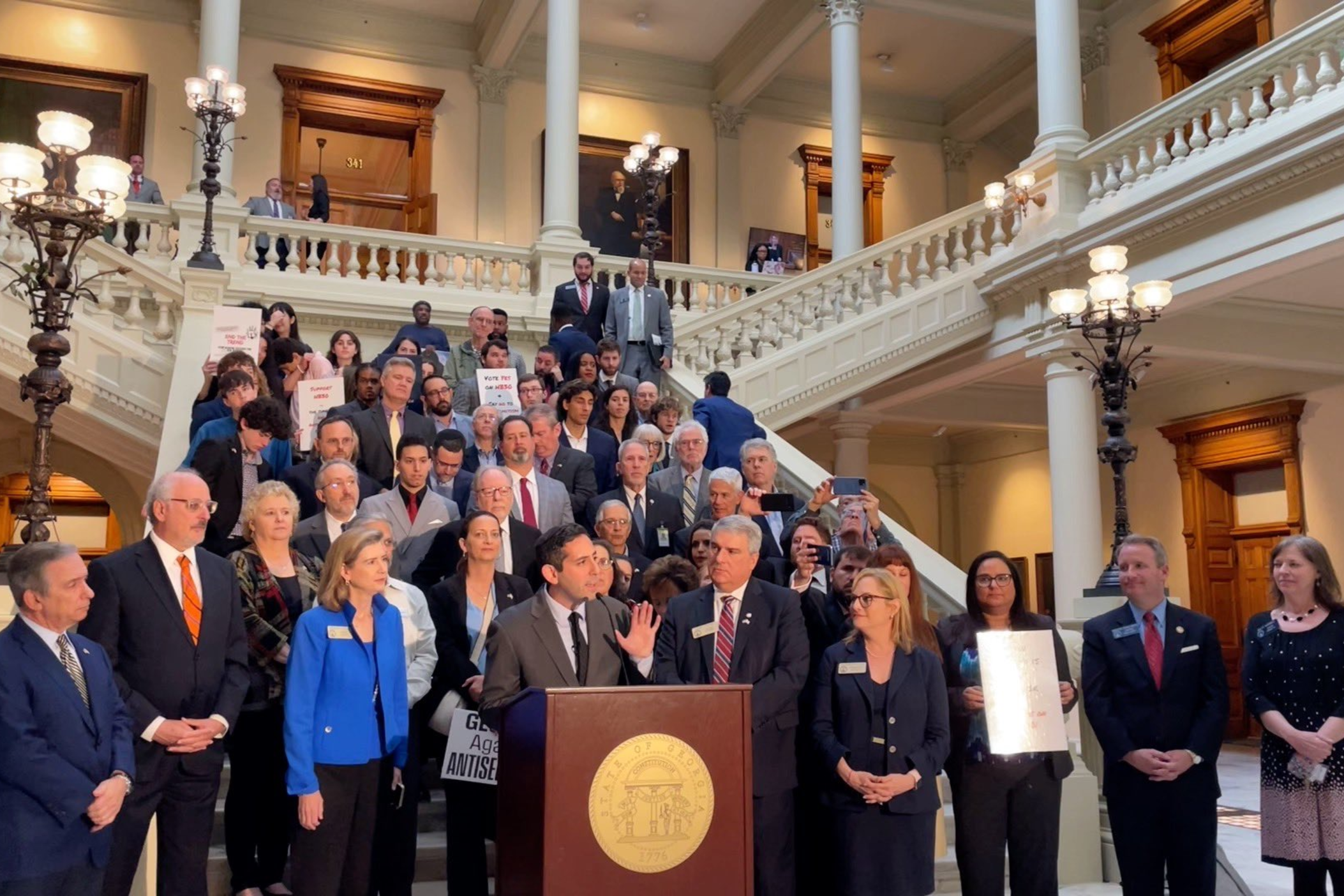Section Branding
Header Content
Recent Neo-Nazi protests fuel renewed push for antisemitism law
Primary Content
The Neo-Nazi protests that took place in Marietta and Macon have renewed the push to pass the antisemitism bill that stalled in the Georgia legislature this year.
"Everybody at the Capitol pretty much agrees — except for a few people — that we have an antisemitism problem here in Georgia," said state Rep. John Carson (R-Marietta), one of the sponsors of House Bill 30, which would define antisemitism in state law.
Last Friday in Macon, a neo-Nazi group spewed antisemitic and anti-LGBTQ rhetoric outside Macon's Temple Beth Israel.
The next day, people with a Nazi flag and holding signs with hated-filled messages protested outside the Chabad Lubavitch, a Jewish community center in Marietta.
Carson believes the same group that protested in Macon came north to Cobb County, and they are based in Florida.
"These people are just hateful bullies, and it's the age-old question of do we give them attention, call it out, and condemn it, or ignore it?" Carson said. "House Bill 30, the antisemitism bill, has stalled two years in a row in the state Senate, and I'm hopeful it'll be reconsidered in the upcoming 2024 (legislative) session."
The legislation passed overwhelmingly out of the Georgia House (136-22), but the bill never reached the Senate floor.
At issue is the inclusion of the antisemitism definition adopted by the International Holocaust Remembrance Alliance or IHRA.
"90% of the Jewish community stands behind this bill and supports it," said Esther Panitch (D-Sandy Springs), the only Jewish member of the state Georgia legislature.
But a coalition of groups, including some Jews, asked lawmakers to reject the IHRA definition, claiming it restricts criticism of Israel and silences Palestinian voices.
State Rep. Ruwa Romman (D-Duluth), the only Palestinian member of the General Assembly, said students first alerted her to the problems with the IHRA definition.
"They said, 'our school has been using this specific definition, and it has led us to canceling events by Palestinian poets, by Palestinian historians, by any sort of civil rights and human rights figures and individuals that talk extensively about human rights abuses in the in Israel,'" Romman said.
"It does not prevent free speech," Carson said. "it's right there in the legislation that someone can exercise their First Amendment rights."
"I need to do a better job, as the only Jewish legislator, to let the rest of the legislators know that it is the comprehensive gold standard in the world," Panitch said of the IHRA definition.
Carson agrees that educating more lawmakers about the definition is essential.
"This is a definition of antisemitism that has been adopted, either by statute or resolution in 28-plus states," he said.
Romman also wants her constituents to reach out to lawmakers about their concerns.
The 2024 Georgia General Assembly begins in January.


